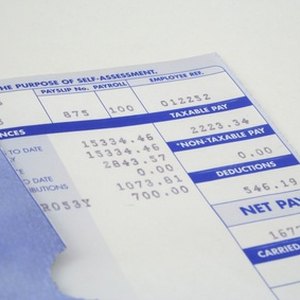
The San Francisco Gate reported that at the end of 2019, the California State Controller held over $9 billion dollars in unclaimed property belonging to Californians – including unclaimed paychecks. California laws regarding unclaimed property require entities, such as banks, employers and insurance companies, to surrender unclaimed property to the state after specific waiting periods, typically three years or longer, rather than converting it to their own use.
Reporting Deadlines for Unclaimed Paychecks
By November 1 of each year, the holder of unclaimed paychecks must notify the Controller’s Office of the existence of the unclaimed property. Reporters can use standard forms supplied by the National Association of Unclaimed Property Administrators. Between October 31 and April 30 the check holder must diligently attempt to notify the employee about the unclaimed paycheck.
The Controller’s office’s website provides samples of due diligence letters. Under Section 1513 of the California Code of Civil Procedure, holders of unclaimed wages or salaries in excess of $50 must turn the funds over to the State of California’s Controller one year from the date the wages were due.
Controller’s Office Activities
Before 2007, the controller could not use state resources to locate and contact the paycheck’s owners. Since 2007, changes in the law permit the state to locate and notify workers about wages they may have not realized were still due them. The state has an official “Locator Unit” dedicated to finding owners of unclaimed property. The Controller’s office begins in collection efforts while the paycheck is still in the possession of the issuer, using information the check holder supplies in the mandatory November 1 report.
The Controller’s Office monitors compliance with the state’s unclaimed property laws. The office maintains an online record of unclaimed property and processes claims by owners. The Sacramento Bee reported that in the single month of September in 2019, $23 million was returned to 38,000 property owners.
Locating and Claiming Unclaimed Paychecks
If a worker suspects that there may be an outstanding paycheck due her, she can locate all unclaimed property reported to the state by contacting the State Controller’s office by telephone or the internet. Searches can be done using just a surname. The state website lists unclaimed property reported to the state or surrendered to the state.
If a search yields unclaimed property, the property owner can initiate a claim by clicking on the “Property ID” number shown for each item in the search results. The link leads to a printable claim form with instructions on completion and submission to the Controller’s office. Claims for paychecks valued at $1,000 or more must be notarized. All instructions should be carefully followed when filing a claim.
Penalties for Non-Compliance
Under Section 1576 of the State Code of Civil Procedure, an organization that deliberately fails to notify the state timely regarding unclaimed paychecks, fails to attempt to locate the check’s owner or even fails to use the proper reporting format specified in section 1530 can incur fines of $100 for each day of non-compliance. The maximum fine is $10,000. If, however, the check holder fails to report or deliver the unclaimed property to the state, the fine is a minimum of $5,000 and could reach a maximum of $50,000. The Controller could also assess interest on the value of the property while it was kept improperly in the holder’s possession.
References
- San Francisco Gate: Is Some of Calif.'s $9.3 Billion in Unclaimed Assets Yours? Here's How to Find Out
- Sacramento Bee: Is California Holding Your Money? State Has $9 Billion in Unclaimed Paychecks, Refunds
- USA.gov. "Unclaimed Money from the Government." Accessed Feb. 1, 2020.
- Washington State. "Unclaimed Property: General Information." Accessed Feb. 1, 2020.
- U.S. Securities and Exchange Commission. "Escheatment Process: Accounts -- Abandoned and Unclaimed." Accessed Feb. 1, 2020.
- National Association of Unclaimed Property Administrators. "What is unclaimed property?" Accessed Feb. 1, 2020.
- Office of the New York State Comptroller. "Annual Report of the Office of Unclaimed Funds," Page 1. Accessed Feb. 1, 2020.
- The New York Times. "There Are Billions in Unclaimed Assets Out There. Some Could Be Yours." Accessed Feb. 20, 2020.
- New York State Comptroller. "Office of Unclaimed Funds Fact Sheet." Accessed Feb. 20, 2020.
- Texas Comptroller of Public Accounts. "Texas Comptroller Announces Record $308 Million in Unclaimed Property Returned in Fiscal 2019." Accessed Feb. 20, 2020.
- PressConnects. "Unclaimed Funds: Most less than $100, but one Connecticut resident got missing $32.8 million." Accessed Feb. 20, 2020.
- Internal Revenue Service. "Where's My Refund?" Accessed Feb. 20, 2020.
Writer Bio
Jane Amar received a Bachelor of Arts in Spanish language and literature from the University of California in Riverside in 1970. After more than 37 years in government service in management and technical positions, she retired and began her writing career. Since 2007 she has written online content in English and Spanish for profit and nonprofit services and individual entrepreneurs.

